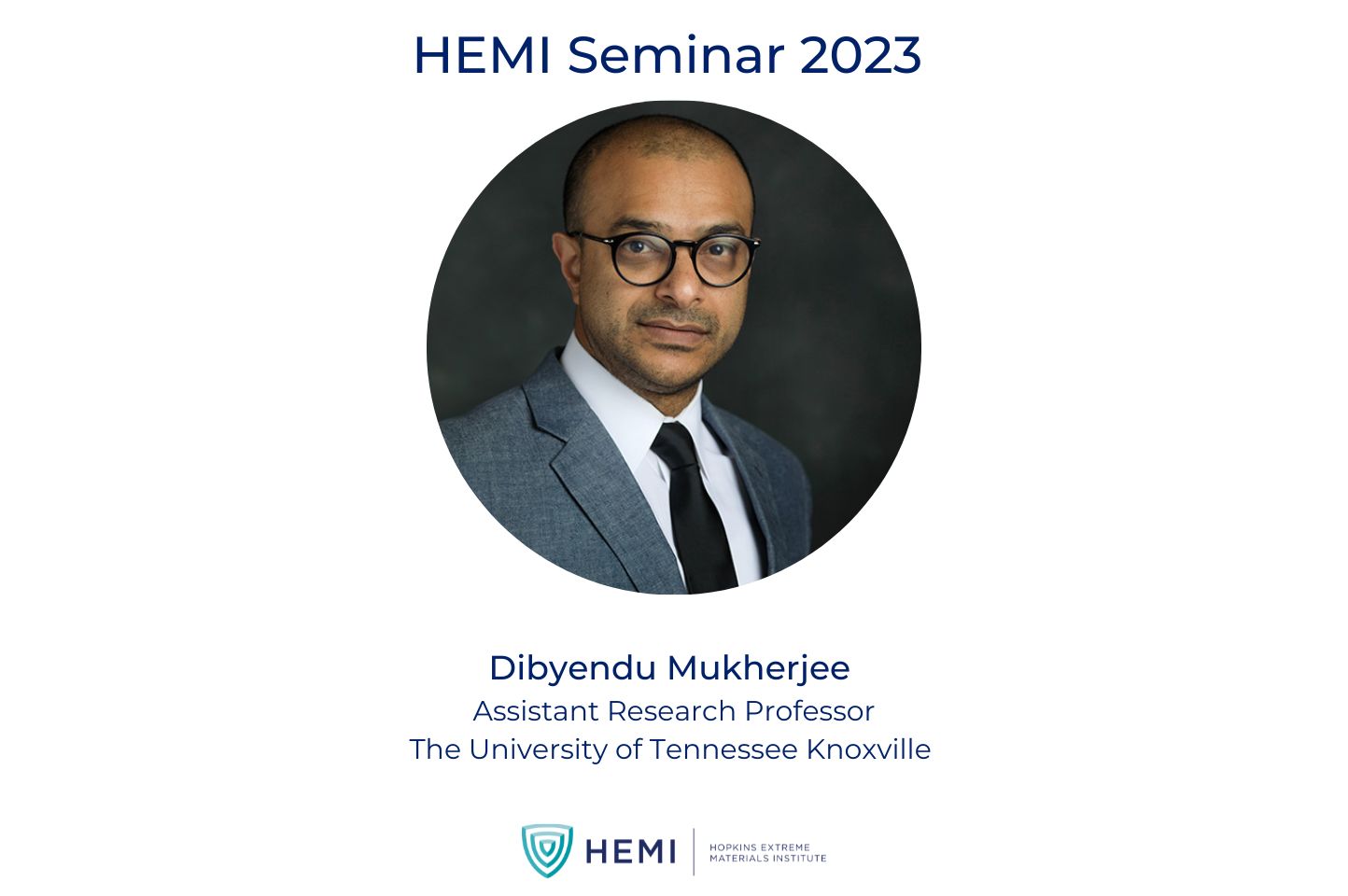January 27, 2023 @ 11:00 am - 12:00 pm
Event Navigation

Location: Malone G33
Title: Laser-induced metastability in Al/AlOx-based composite energetic nanomaterials stabilized by carbon interfaces via Reactive Laser Ablation Synthesis in Solution (r-LASiS)
Abstract: Tailored interfacial and metastable structures can effectively circumvent the diffusion limitations due to oxide shell formation in Aluminum (Al) nanoparticle (NP)-based energetic nanomaterials (ENMs). Yet, rational design and synthesis of metastable nanostructures via non-equilibrium routes remain largely unexplored. Specifically, non-stoichiometric/amorphous Al-oxide (a-AlOx) structures in metastable states – albeit, theoretically predicted – are rarely reported in experiments due to the inability to kinetically trap and phase-stabilize such targeted structures. Our group has recently patented Reactive Laser Ablation Synthesis in Solution (r-LASiS) as a one-pot non-equilibrium route to synthesize a myriad of functional composite and intermetallic nanomaterials. This talk showcases the use of r-LASiS techniques for the synthesis and structure-property characterizations of composite ENMS comprising graphitic shell coated Al NPs, andmetastable a-AlOx NPs in hyper-oxidized states (2.5<x≤3.5) phase-stabilized by interfacial C monolayers – both dispersed in pyrolyzed-C matrices. Herein, the C shell promote safe handling and enhanced activities by preventing surface oxide formation, while burning into gaseous products (CO2, CO etc.) upon ignition. Furthermore, the C-stabilized a-AlOx NPs show remarkable stability that undergo solid-solid phase transition to stable α-Al2O3 only at high-temperatures (>750-800oC), while releasing excess energy and trapped gases. Results presented here lay the foundations for tailored design of interfacial/metastable structures in composite ENMs that can exhibit kinetically-controlled fast energy release under high-pressure/temperature by bypassing the diffusion-limited oxidation of metal NPs.
Biography: Dibyendu Mukherjee is a Research Assistant Professor in the Department of Chemical & Biomolecular Engineering (CBE) at University of Tennessee, Knoxville (UT) where he directs the NanoBioMaterials Laboratory for Energy, Energetics & Environment (nbml-E3). His research focuses on the synthesis, assembly, and characterization of functional nano-biomaterials with transformative performances for energy, energetic and environmental applications. Dibyendu received his B.E. and M.S. degree in Mechanical Engineering from M. S. University of Baroda (India) and the University at Buffalo (SUNY) respectively. He earned his Ph.D. in Mechanical Engineering from the University of Minnesota, Minneapolis. Prior to his current position, he was a postdoctoral researcher at Oak Ridge National Lab (ORNL) and a Gibson research fellow at UT. He holds 2 US patents on Laser Ablation Synthesis in Solution-Galvanic Replacement Reaction (LASiS-GRR) techniques for green synthesis of complex nanoalloys/nanocomposites. In 2021, he received the Defense University Research Instrumentation Program (DURIP) award for scalable nanomanufacturing of composite/metastable energetic nanomaterials via machine learning-driven programmable LASiS techniques. His research is currently supported by AFOSR, ONR and NSF-IUCRC programs.




